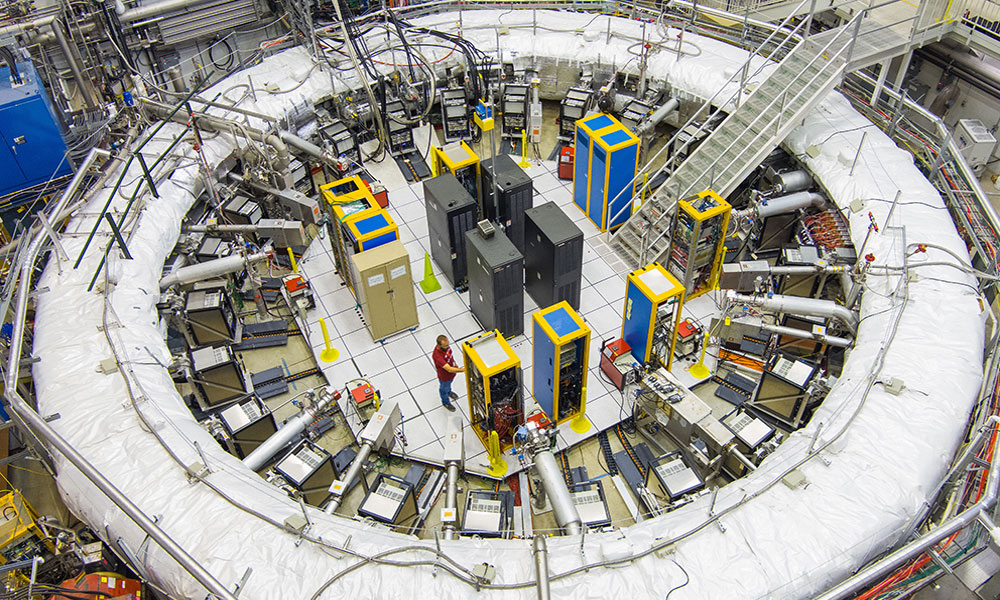JMU physicist, students had role in second groundbreaking discovery at national lab
News
Harrisonburg, Virginia — JMU physicist Kevin Giovanetti and students he has mentored were among the contributors to experiments that led to today’s announcement of a second groundbreaking particle physics discovery at Fermi National Accelerator Laboratory in Batavia, Illinois.
Fermilab, the premiere particle physics and accelerator laboratory in the U.S., announced in April 2021 that the Muon g-2 experiment revealed that fundamental particles called muons behave in a way that is not predicted by scientists’ best theory, the Standard Model of particle physics. One potential explanation for the unexpected behavior would be the existence of undiscovered particles or forces.
Today, Fermilab announced that the latest experimental result is twice as precise as the first result. More information about the Muon g-2 experiment can be found on the Fermilab website.
The Fermilab experiments confirm findings from an identical study done in the 1990s at Brookhaven National Laboratory in New York, but with greater precision.
“Our first measurement was a confirmation of the BNL experiment,” Giovanetti said. “This was important because the BNL experiment might have been wrong and people wondered if we would move the experimental closer to the singular theoretical value. Since our first result verified the previous experiment, the discrepancy was the key point.”
Giovanetti and his students contributed to a joint effort with the University of Virginia to design, prototype and build a power management system that was used as part of the experiment's detector system. Twenty-four detector packages were deployed to detect the muons as they decayed.
“I usually describe these types of experiments as a search for a ‘Holy Grail,’ evidence that there is something new that requires rethinking and innovation,” Giovanetti said. “Clear evidence that there is a discrepancy between theory and experiment is a highly regarded result.”
Giovanetti said working on projects at national laboratories benefits him and his students.
“The role of integrative classroom teaching and student research has always been a hallmark of the physics department’s educational efforts and for me this has been a long-standing effort,” he said. “My status as a researcher over many years has clearly influenced my teaching and remains a critical ingredient.”
# # #
Media contact: Ginny Cramer, cramervm@jmu.edu, 540-568-5325
Photo courtsey Fermi National Accelerator Laboratory
